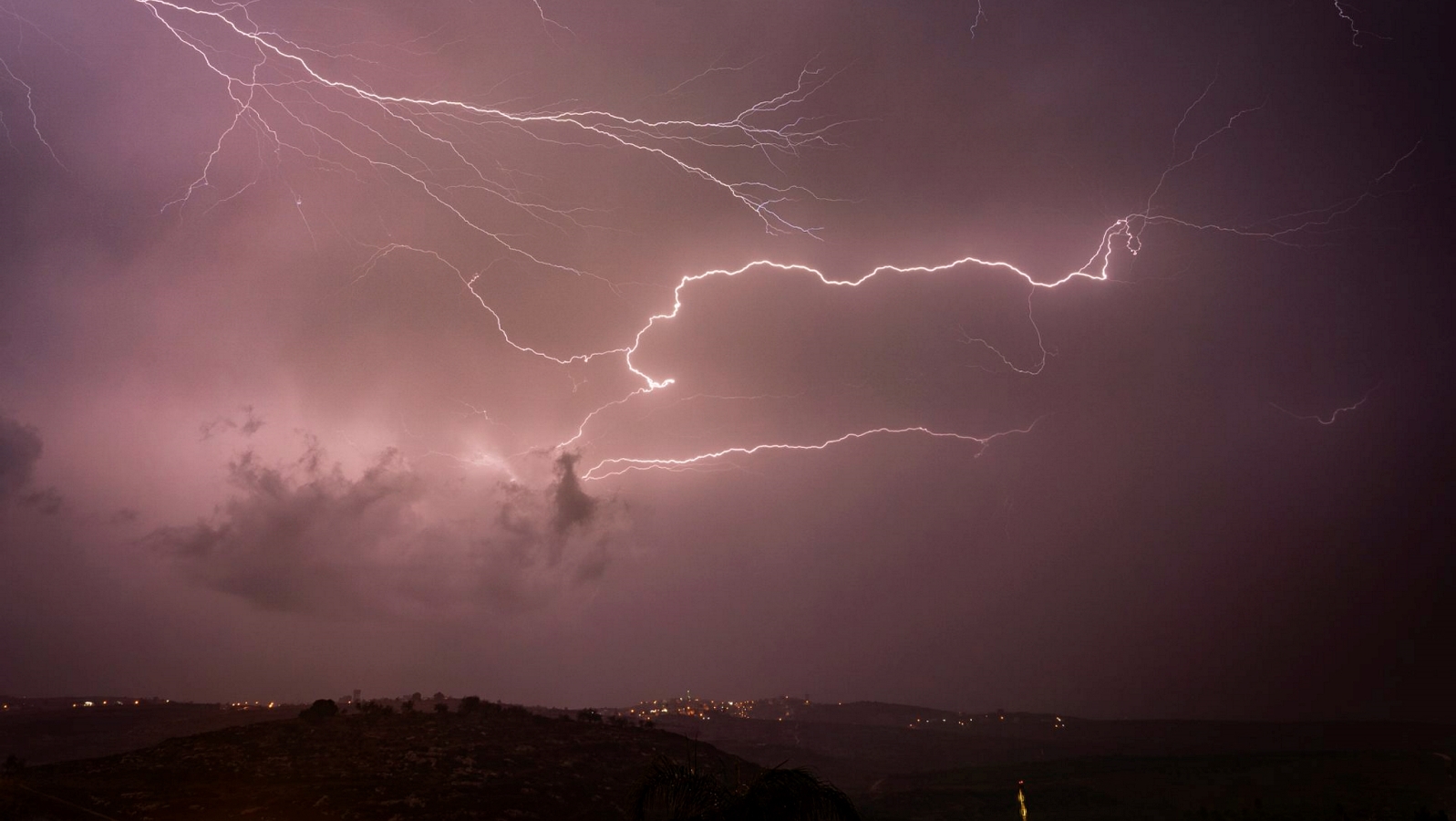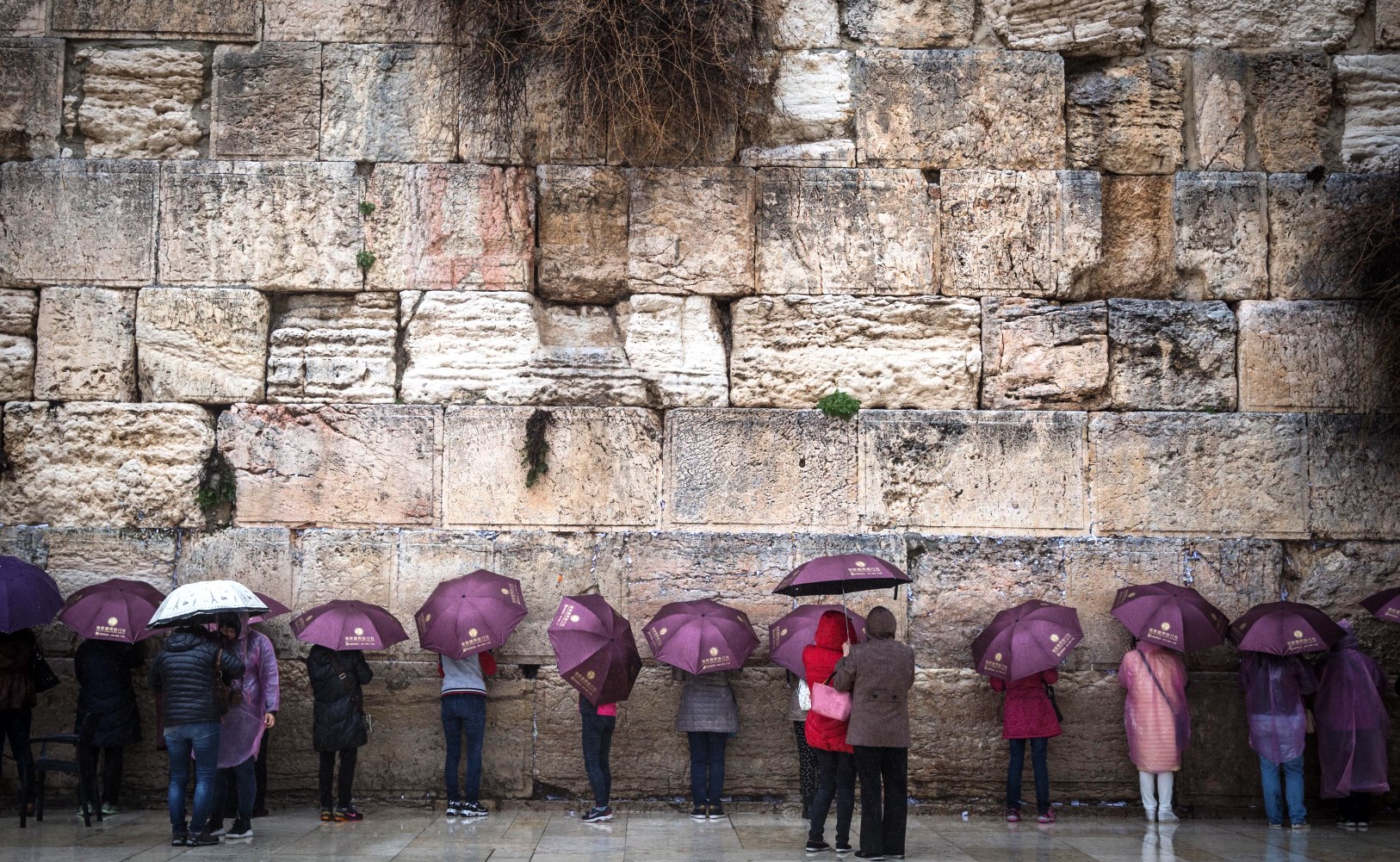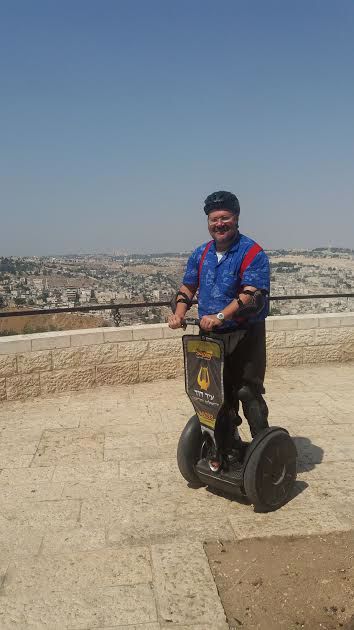| The more a person loves the trait of kindness, the more he will actually act with kindness and do so generously and willingly.
We all run into unpleasant people, but it doesn't have to be disastrous. Find something to learn. Difficult people tend to bring out the worst in us – traits we didn't even know we had. Even if we don't appreciate the person, we can appreciate that they triggered something we can work on improving. Maybe we are overly controlling, approval-seeking or lacking self-worth. Sometimes we can find truth in criticism.
Love Yehuda Lave |
|
|
| What's Up With Orthodox Men and Women and the Handshake? By Rochel Chein
My family and I met with an Orthodox rabbi and his wife the other day. I noticed that the rabbi shook hands with me but not with my wife, and that his wife shook hands with my wife, but not with me. What's the big deal about men and women shaking hands? Isn't a handshake just a handshake? Answer It's common enough that we don't think twice: a quick handshake when meeting, greeting, parting, sealing an agreement, or offering congratulations. But what does Judaism have to say? Could a simple handshake be problematic? When listing forbidden sexual relationships, the TorahThe Torah doesn't simply say "don't do it." It says, "don't even come close." doesn't simply say "don't do it." It actually commands us, "don't come close" to committing these acts. 1 "Coming close" means any sort of physical affection that might lead to transgression. The sages of the Talmud compare this to a Nazirite who is forbidden to drink wine or eat grapes, and as a precaution may not even enter a vineyard. 2 Practically speaking, this is understood to include all affectionate touch between men and women, aside from one's spouse and closest blood relatives (parents, grandparents, children and grandchildren 3). When it comes to touch that's not affectionate, opinions vary. While some Halachic authorities permit such touch, others maintain that all touch between unrelated men and women is to be avoided. 4 (This does not include professionals such as doctors, who are assumed to be involved in their work.) It's easy to understand why intimate relationships between unrelated men and women are problematic, but surely a handshake is nothing more than a polite greeting? Or is it? A firm handshake, a limp handshake, a hand held just a tad too long; so much can be conveyed through this seemingly innocent gesture. A handshake is just a handshake—until it becomes something more. There is a very fine line between casual touch and sensual touch, and an interaction can easily slip from one category to the other. We respect each other's privacy and dignity and protect our own by maintaining clear boundaries. Preserving the Power of Touch There's a deeper message here, as well: That which is most precious and Touch with the right person at the right time should be a powerful experience.valuable must be protected. Judaism views touch between men and women as sacred and significant, loving and intimate. We safeguard the power of touch between man and woman by reserving it for those closest to us. We might think of a handshake as insignificant, but the Torah teaches us the level of sensitivity that we should have. Touch with the right person at the right time should be a powerful experience. Refraining With Respect On the other hand, the Torah also tells us to treat others with respect and to be extremely careful to avoid embarrassing anyone. In a culture where a handshake is the typical greeting, one might be concerned that refraining from shaking an outstretched hand will cause awkwardness. So, some plan ahead, making sure to be holding a drink, a folder, or a business card during social or business interactions. Others prefer the direct approach. I find that a warm smile, eye contact, and a brief explanation work well. "I don't shake hands with menIn my experience, those I have met have respected my religious considerations and been understanding. for religious reasons. It's so nice to meet you!" In my experience, those I have met have respected my religious considerations and been understanding. When we honor our convictions and refrain from shaking hands, we are showing respect: respect for another's personal space and privacy, respect for the sanctity of marriage. When I greet a man, I don't shake his hand, but I try to make my respect and consideration for him clear. See also: Why I Didn't Shake President Bush's Hand Footnotes 3. Affectionate touch is even forbidden among adult siblings. 4. Rambam (Hilchot Issurei Biah 21:1) rules that all physical contact that is affectionate ( derech chibbah) is forbidden by the Torah, while the Ramban (Sefer Hamitzvot Lo Ta'aseh 353) holds that the prohibition is of rabbinic origin. Rabbeinu Yonah (Sha'arei Teshuva 3:80) takes a stricter approach: "All physical contact is forbidden, such as touching the hand of a married woman." According to this view, all physical contact is forbidden by Torah, whether or not it is affectionate.
Within the approach of the Rambam, there is further discussion. The Shach (Yoreh Deah 157:1 and 195:20) writes that he would permit all non-affectionate touch. Others understand the Rambam to mean that non-affectionate touch is still forbidden on a rabbinic level, as there is a very fine line between touch that conveys affection and that which does not, and touch can easily slip from one category into the other. In order to avoid this, all touch is forbidden.
Rabbi Moshe Feinstein wrote several responses on the matter (Igrot Moshe, Even Ha'ezer 1:56 and 4:32 and Orach Chaim 1:113). In one instance he writes that shaking hands is "certainly clearly forbidden." In another, he explains that while there is room to be lenient based on the Shach, who permits touch that is not intimate, it is difficult to rely on this, since it is hard ascertain that there is no desire involved at all.
Does the same apply to shaking an already proffered hand, where there is the concern of embarrassing someone? In that case, he writes: "As far as your having seen even pious individuals returning handshakes offered by women, perhaps they think that it does not constitute an affectionate act, but it is difficult to rely on this."
Rav Menashe Klein, author of the Mishne Halachot, writes that handshaking, even to avoid embarrassment, is forbidden for three reasons: 1) Many decisors disagree with the Shach and write that even touch that is not affectionate is forbidden. 2) The Shach's lenient ruling is in regard to a doctor involved in his work; it is possible that even the Shach would forbid handshaking. 3) Even if a handshake begins non-affectionately, it can easily lead to something more affectionate, which all would forbid. Mrs. Rochel Chein is a member of the chabad.org Ask the Rabbi team. © Copyright, all rights reserved. If you enjoyed this article, we encourage you to distribute it further, provided that you comply with Chabad.org's copyright policy.
|
|
|
The Miracle of the Menorah and the Deadbeat Husband
It was a depressing sight. The small boy stood in the bare room—long stripped of its furniture and warmth—looking down at the pale man between the sheets. There was no use denying the inevitable: his father's death was imminent. "My dear Berish," whispered his father, his voice barely audible. "I know we struggled, and although we were forced to sell almost everything else, the menorah I didn't touch. An inheritance in our family for generations, I leave it to you." "Please, Berish," said the dying man, closing his eyes, "protect it as though your life depends on it. No matter how bad things get, don't sell it..." His voice trailed off, and with his heart's final beat, that was it. Berish's father had uttered his last words. It hadn't always been this bad. In fact, Berish's parents had once been among the wealthiest citizens of Szerencs, Hungary. But when his father's business suffered setback after setback, furniture disappeared for money, even the food became scarce and bland, and life was gloomy. Unable to cope, Berish's mother died when he was only eight.It hadn't always been this bad. In fact, Berish's parents had once been among the wealthiest citizens of Szerencs, Hungary. Just two years later, he witnessed his father's death, leaving him an orphan. Kind neighbors invited the boy to live with them. They sent him to sit and learn in yeshivah, and though Berish tried his best, his studies never stuck with him. Feeling he would perhaps be better suited to handiwork, his foster parents set up an apprenticeship with Chaim, the local carpenter. The idea excited Berish, who found he enjoyed—and was good at—whittling wood. In fact, he excelled. Years passed, and when Chaim was ready to retire, he sold his shop to Berish, who kept things running smoothly. When Berish married a young woman from Teglas, 80 kilometers to the south, he closed the workshop and moved to his wife's hometown, where they lived close to her parents. He had hoped to set up a new workshop, but an impressive and successful one was already operating there, leaving no room for fresh competition. With no work, the young couple struggled to get by, and they lived off their savings until there was nothing left. After consulting with his wife, Berish decided to return to Szerencs, where he hoped to reopen his shop. Unfortunately for him, Berish found a different carpenter already servicing the area. Left with no recourse, Berish wandered from town to town, hoping to find an area he could service with his carpentry. He made sure to send occasional letters to his family, reassuring them that everything was fine and that he was still looking. But his search took him further than he had ever imagined; he was far away in Paris when Berish decided to abandon hope of ever reopening his carpentry shop. By this point, the fruitlessness had driven him to near madness, which he would drown with spirits. One day, Berish was offered a job as a waiter. He seized the opportunity to escape the destructive cycle of alcoholism, but the job was in an inn frequented by unruly characters, and the unsavory atmosphere only added to his struggles. Little by little, Berish dropped Jewish observance, forgetting the wife and little ones left behind too. Back home, the young woman found no solace and poured her misery out in tears. It was as if the earth had swallowed her beloved husband. She tried whatever means she had at her disposal, approaching strangers traveling through town and grilling them about her husband's whereabouts, without success. No one had seen him. The young woman's neighbor relayed her plight to Rabbi Yechezkel of Sieniawa (Shineva), who was passing through Teglas. Rabbi Yechezkel listened without saying a word. He sighed and handed the neighbor something for the young woman: a pouch full of bills. The desperate young woman wanted more. Was this really the tzaddik's response? Giving the pouch a reproachful glance, the young woman burst into tears and stormed into Reb Yechezkel's lodgings, demanding action. "Do you really think some money is a substitute from my husband? I want him back!" Seriousness clouded Reb Yechezkel's features. "Don't you have an old menorah in your house? Light it for the first seven days of Chanukah as usual. On the eighth, however, make sure to keep the menorah burning through the night. If necessary, have someone refill it with oil as needed."
It was evening as Berish made his way down the stairs. Rowdy as usual, the inn swelled with patrons who had quickly finished the bar's stock of drink, forcing him to get more from the cellar. He suddenly felt a strong grip on his shoulder. Berish spun around to see an old Jew staring at him in the dim light. "How dare you abandon your wife? Return home immediately!" Forgetting the bottles, Berish fled up the stairs, fearing the strange apparition. But a look down into the dark cellar revealed no one, much less an elderly Jew. He didn't feel any better after telling his boss, who roared with laughter at his tale. A few days later, Berish was confronted by the unhappy Jew once more. This time, the man sounded ominous, promising unpleasant things if Berish failed to follow his instructions. Berish's boss discovered him splayed on the floor, unconscious. Doctors suspected the hallucinations were a result of his crushing workload, and ordered rest. But Berish had no intention of doing so. Telling his boss he needed to leave town for several days, he began the long journey back to Teglas.
Drenched and chilled to the bone, Berish stared down the pitch-black and muddy street, barely able to discern the houses. He had arrived in Teglas late at night, in the midst of strong rain that made the streets run with brown sludge. Nothing seemed familiar. Finding his erstwhile home in these circumstances was impossible, but something in the distance caught his eye. Berish slogged through the thick mud, knocked at the door, and waited, his heart pounding. Barely a flicker in the rain, a light shone from behind a window. Berish slogged through the thick mud, knocked at the door, and waited, his heart pounding. The door opened a crack and Berish invited himself inside to huddle near the stove. As feeling returned to his fingers, he looked around and found the source of the light: his father's silver menorah twinkling merrily on the windowsill. Realizing he was, in fact, in his own home, Berish lifted his eyes to meet his wife's. With tears and remorse, he tried to explain his struggles over the past years to his wife. "Would you be kind enough to forgive me?" he implored. For a while, neither spoke. Berish broke the silence with another question. "Why is my father's menorah lit at such a late hour?" His wife explained everything, and in time, they settled back into the life they had shared several years prior. At one point, Berish wanted to meet Rabbi Yechezkel, whose counsel had guided him home. When they came face to face, he could hardly contain his shock: before him stood the strange old Jew who had confronted him in the cellar of the inn in Paris. Adapted from Sichat Hashavua #1303 |
|
|
Downfall of the Enemy
I married a negative person who has a very negative attitude. All these years whenever his meanness or negativity was pointed in my direction, I would scream and cry and pray to God to help me. Never in all my years did I think to ask God to help my husband become a nice, kind, loving person. I am doing that now. This made me think about how I would pray for the Jews is Israel. Will it help to pray for the Arabs to love them? The Aish Rabbi Replies:
You've arrived at a deep spiritual truth. The Talmud (Brachot 10a) tells about some neighborhood bandits who were constantly harassing Rabbi Meir. One day Rabbi Meir prayed that they should die. His wife Bruria said, "Is such a prayer permitted? The verse in Psalms 104:35 says that 'SINS will cease from the earth' – not that 'SINNERS will cease from the earth.' So rather than pray for their demise, you should pray for them to repent." Rabbi Meir listened to his wife and prayed that the bandits return to the righteous path. Soon after the bandits reformed their ways. Every human being is created in the image of God and we should pray for their return to sanity. The story is told of a woman sitting at home with her pet cat, when a mouse suddenly runs loose through the house. The woman and the cat share a common goal: They both want the mouse removed. The difference is that the woman simply wants the mouse to stop bothering her, but the cat wants it dead. Jews in Israel don't want to kill Arabs, God forbid. We just want to be left alone to live in peace. If they do not choose the path of peace, and they suffer because of it, we are still instructed not to rejoice at the downfall of an enemy (Proverbs 24:17). Jews have always shown tremendous respect, even for their enemies. The Midrash explains that during the last six days of Passover, we do not say the complete Hallel prayer of joyful praises, because when the Jews crossed the Red Sea, God said, "Since my creations [the Egyptians] are drowning, you should not be singing praises." Ezekiel 39:13 describes how the Jewish people were credited with a tremendous sanctification of God's Name, by treating enemy corpses with great respect. In modern times, I recall an incident a few years ago when Palestinian terrorist Abu Jihad was assassinated, and the Palestinians were certain the Israelis did it. How did they know? Because Abu Jihad's wife and children were left unharmed. We would much prefer to live at peace with the Arabs. And we pray for them to pursue the path of peace. |
|
|
 (Photoillustration IvyTashlik; original photo Shutterstock) In September of 1789, Congress passed a resolution declaring a "public day of thanksgiving and prayer," but, in the rush of last-minute business before an autumn recess, left it up to the president to actually pick a date for the holiday. A few days later, George Washington, following a loose precedent set by the Continental Congress, announced he had picked a Thursday—the 26th of November, as it happened—for the observance, thereby creating a problem that has vexed Jews over the two centuries since: how to handle making, and eating, an equally festive Shabbat meal the very next day. The last thing most Americans will be thinking about on Friday morning is more food, but in households where a bountiful Shabbat dinner is a weekly ritual, cooks who also celebrate Thanksgiving will be busily devising ways to re-purpose the turkey leftovers, or at least move them around to make space in the refrigerator for the usual weekend menu of soup, chicken, or cholent. "We tend to eat a lot on Thanksgiving—it's like a yontif," said Ahava Leibtag, who expects nine people for dinner on Thursday and as many as 18 the next night. "So, on Friday, I don't feel like I need to make it so elaborate, but you still can't take away from celebrating Shabbat." Leibtag, a 34-year-old mother of three who lives in Silver Spring, Md., said she didn't like the idea of putting leftovers right back on the table—as much because it felt tacky as because she couldn't imagine people wanting to eat the same meal two days in a row—but planned to use the remains of her 17-pound turkey as the base for her Friday night soup, instead of chicken stock, and serve it with meatballs and couscous. Like many cooks used to putting on large-scale weekly Shabbat meals—without being able to adjust their ovens or use burners, of course—she seemed unfazed at the idea of feeding so many people, so many times in a row. "There's just none of the same frenzy that non-observant people have about pulling off a big dinner," said Susie Fishbein, author of the Kosher by Design cookbook series. She said she planned a dairy brunch—quiche, bagels, lox—for Friday, along with turkey sandwiches or a turkey salad for Friday night, along with pumpkin muffins made from the same base as the pumpkin bread she'll serve on Thursday. "I wouldn't put the carcass of the turkey on my Shabbes table," she said. "My family is not going to see leftovers, but they'll see parts of recipes reincarnated." Others said they planned to make use of the fact that everyone would have leftovers they didn't plan to eat on Friday. "I'll make a fresh chicken on Friday night, because I think Shabbat dinner should be special," said Rachel Herlands, a Modern-Orthodox Jew who lives in Manhattan. "But I'm having 25 people for Shabbat lunch this week, so I'm encouraging people to bring their leftovers and make it a Thanksgiving leftover Shabbat lunch." Observant Jewish cooks, of course, frequently have to plan for multiday festival holidays, like Sukkot or Passover, which revolve around the ritual consumption of traditional dishes. "When you have a three-dayer like this, it's not the time to be using your Martha Stewart influence—you have to make what you know," said Lisa Baratz, an attorney in Hollywood, Fla., who has four teenage boys and expects to have 18 people on Thursday and Friday. She plans to make her standard brisket and matzoh-ball soup on Wednesday and keep it until Friday in one of her two refrigerators; Thanksgiving leftovers won't reappear until after Shabbat is over. "Cranberry sauce will last, yam pie lasts," she said. "Who wants to eat it Thursday and again on Friday?" Of course, some families decide to square the circle and make do with a "Shabbat turkey." Bronya Shaffer, a Canadian-born Lubavitch who now lives in Brooklyn's Crown Heights neighborhood, said she prepared a traditional Thanksgiving meal on Thursday for years, until her in-laws passed away. "I would just have salads and a light soup on Friday night, instead of something more substantial," said Shaffer, now 61, who has 10 grown children. "But in the last few years, what we've done is defer it all to Friday night—it's just simply more convenient." |
|
|
| |  Chaya V Chaya V  Friday, 23 November 2:11 AM Friday, 23 November 2:11 AM | Reply to this message at chaya_valier@yahoo.com. | | With the first major storm of the season already over, Israel is now preparing for the winter ahead. It won't be a long one — it won't even be a particularly cold one, contrary to what Israelis tend to think — but it will be full of atmosphere. Torrential rainstorms, foggy nights, wind and hail, even snow – Israel may be in the Middle East, but during the short winter months it gets its fair share of bad weather. Sit back and relax beside the fire, and enjoy our selection of winter photographs from all over Israel.  Storm coming. Clouds begin to brew over the Mediterranean Sea near Netanya as a January storm approaches. Photo by Anat Hermony/FLASH90  People walk with umbrellas through the streets of Israel's northern city of Tzfat during a January rainstorm. Photo by David Cohen/FLASH90  As rain begins to fall more steadily throughout Israel, the rivers and streams begin to swell. A waterfall in Yehudiya Forest Nature Reserve in the Golan Heights last January. Photo by Maor Kinsbursky/FLASH90  A view of fog over Ein Karem and the Jerusalem mountains early in the morning this November. Photo by Yaakov Lederman/FLASH90  Watch where you're going! A man gets caught out by heavy waves flooding Jaffa Port in Tel Aviv during a ferocious storm last January. Photo by Yaakov Lederman/FLASH90  Even the desert gets rain. Israelis come down to watch the floods in Nahal Og, a stream that runs from Jerusalem to the Dead Sea. Photo by Maxim Dinshtein/FLASH90  Lightning illuminates the sky over the Samarian Mountains. Photo by Hillel Maeir/FLASH90  A group of Asian tourists with matching umbrellas visit the Western Wall during a February storm. Photo by Hadas Parush/FLASH90 | |
|
|
 Water floods the area after heavy rainfall in the southern Israeli city of Eilat last January, on one of the stormiest days of the winter. Photo by Yehuda Ben Itah/FLASH90 |
|
|
| | | |
 | | | | | |
|  |
|
| |
|















No comments:
Post a Comment